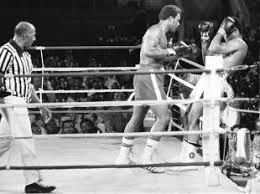Nib #45 — Resumé Writing Tips
With so many young Washingtonians vaulting into the job market this month, here are the Nib’s Top Five Resumé-Writing Tips (plus a bonus tip at the end!):
1. Revise Your Resumé Every Time You Send It
Don’t have one, static resumé that you blindly shoot off every time you hear about an open position. Rather, re-tailor your resume for each opportunity.
Different offices prioritize different things. If one is looking for policy experience, project management, academic credentials, published writing, or whatever else, rework your resume to emphasize that quality.
2. Nail Your Verbs
Verbs are the most important words in your resumé, so get them right. Make them active, specific, and vivid. Avoid vague, directional verbs like engaged or impacted or effected. Prefer direct, concrete verbs like produced or spearheaded or partnered or delivered.
3. Use Specific Details
Most job descriptions sound similar because, in general, most jobs are similar. Specific details are differentiators — and resumés that communicate them stand out.
Instead of saying “assisted in drafting constituent letters” say “drafted 79 constituent letters on issues ranging from school choice to fracking.” If you helped write bills or organize hearings, name one well-suited to the position you’re applying for.
Those details are more interesting than another line that goes “interfaced with staff to coordinate and implemzzzzzzz…”
4. Be Concise
Resumés should generally be one page long, even if only to signal one’s humility and discipline. No padding; no overwriting.
Remember, the people reading your resume would be superior to you in the office if you got the job. If your resumé comes across as self-aggrandizing, they might reasonably assume you’ll be a pain to manage.
5. Proofread Your Resume Out Loud
As always, read your drafts out loud. It’s the most valuable writing tip anyone can ever teach or learn. Typos on a resumé are obviously a red flag. But reading aloud will also help with the four other tips listed above: audience targeting, verb choice, specificity, and concision. The ear always hears what the eye doesn’t see.
Bonus!
Attentive readers might notice that the five tips above are not only applicable to resumé-writing, but to all writing formats, from love letters to random notes. Use them liberally, especially all you conservative job-seekers descending on D.C.!
Until next week… keep writing!











